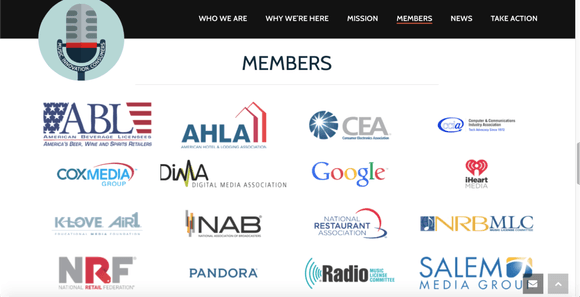Our friends at Royalty Exchange round up and analyze the top news stories of the last fortnight in music royalties.
Week ending September 29th: Copyright Recapture Rights May Create New Investment Opportunities
Inside the Secretive, Difficult Struggle Between Artists & Labels Over Recording Copyrights (Billboard)
Benom’s Take: In light of this week’s big story about the Royalty Flow IPO, the Billboard article regarding copyright termination of sound recordings is very timely. The article sheds light on a mysterious corner of the music industry that could actually open up more opportunities for the Royalty Flow investment model. Under the 1976 Copyright Act, creators have an opportunity to recapture their copyrights assigned under previous agreements, such as recording and publishing contracts. This recapture right is excluded, however, from a classification of works known as “works-for-hire.” A “work-for-hire” is legally defined as a work prepared by an employee within the scope of their employment or a specifically commissioned work for nine specific uses.
Artists attempting to obtain ownership over their master recordings from their record label is a hot-button topic often met with resistance from the record labels. This is because of a common provision in many record contracts that specifically refer to the artist’s services and master recordings as “works-for-hire.” In fact, it’s also common to see an additional sentence that says “if for any reason” the recordings are not deemed a work-for-hire, the artist will relinquish all claims to ownership of the recordings, including copyright recapture rights. That “if for any reason” part is a sly acknowledgement of the definition of a work-for-hire.
This is because in practice, recording artists are not considered an “employee” of the record company. They are independent contractors responsible for their own taxes, insurance, etc. There is absolutely nothing about the artist-record company relationship that can be deemed an employee-employer relationship. So if the artist isn’t an employee of the record company, are the recordings specific “commissioned uses?” [READ MORE]
And now for this week’s other headlines:
- Urgent Warning!: Time Is Running Out For Artists & Writers To Exercise Their Termination Rights Under U.S. Copyright Law (Music Think Tank)
- 3 MYTHS ABOUT STREAMING… AND 3 TRUTHS ABOUT THE MUSIC INDUSTRY TODAY (Music Think Tank)
- One Look At Ed Sheeran’s Spotify Earning Could Change Your Mind About Streaming (Hypebot)
Week ending October 6th: Omnibus US Copyright Reform on the Horizon
2018 Expected to Bring “Omnibus” Bill of Amendments to Copyright Act (Hypebot)
Benom’s Take: I’ve been expecting the copyright reform issue to surface again soon as we head into 2018 and mid-term elections. The linked article is a very detailed legal analysis of the potential impacts of current copyright amendment bills moving through Congress. Unless you’re familiar with copyright verbiage and the process of Congressional bill passing, the article may be hard to follow. I will attempt to summarize and breakdown the analysis for the layman.
The author, Chris Castle, is a brilliant music industry attorney whom I’ve had the pleasure of hearing speak on music industry copyright issues several times. In the article, Castle warns of a suspected push toward an “omnibus” bill of Copyright Act amendments in 2018 ahead of mid-term elections. The “omnibus” bill essentially means a combining of the various bills into one big bill.
As Castle states: “Omnibus bills are a bad idea for songwriters and artists, particularly independent songwriters and artists, because ominbus bills tend to bring together Corporate America in attack formation.”
Castle’s point is that by combining these potential amendments, it brings high-profile attention and high-profile lobbying efforts by Corporate America against the music industry. Corporate America and “Big Tech” companies that license and pay music royalties see “omnibus bills” as an opportunity to further restrain copyright and royalty payouts. They have a very powerful lobby and have greatly benefited from antiquated copyright laws on the music industry.
For example, the World War II-era consent decree on ASCAP and BMI was designed to protect small businesses from the power and “monopolies” of ASCAP and BMI. This is no longer the market or world we live in. Today, the Google’s and Spotify’s of the world are clearly more powerful and have more money than ASCAP and BMI. If anything, the tables have turned, and some argue that the music industry in fact needs protection from the “Big Tech” monopolies. Many feel consent decrees have reduced competition and lowered royalties.
The bills that Castle refers to are the CLASSICS Act, Fair Pay Fair Play Act, PROMOTE Act, and Transparency in Music Licensing Act. Essentially, each one impacts royalties for sound recordings and/or musical compositions. So basically, the entire music industry. [READ MORE]
And now for this week’s other headlines:
- Neilsen 3rd Quarter Report Shows 40% Jump In On-Demand Streaming (Billboard)
- Spotify Names New Global Head of Publisher Licensing (Variety)
- On Eve of ‘Blurred Lines’ Appeal Hearing, Richard Busch is Music Industry’s Most Feared Lawyer (Billboard)
- Executive Shake-Up at Warner Bros. Music (Music Business Worldwide)
This round-up was put together by Benom Plumb, Assistant Professor of Music Industry Studies at the University of Colorado Denver.
